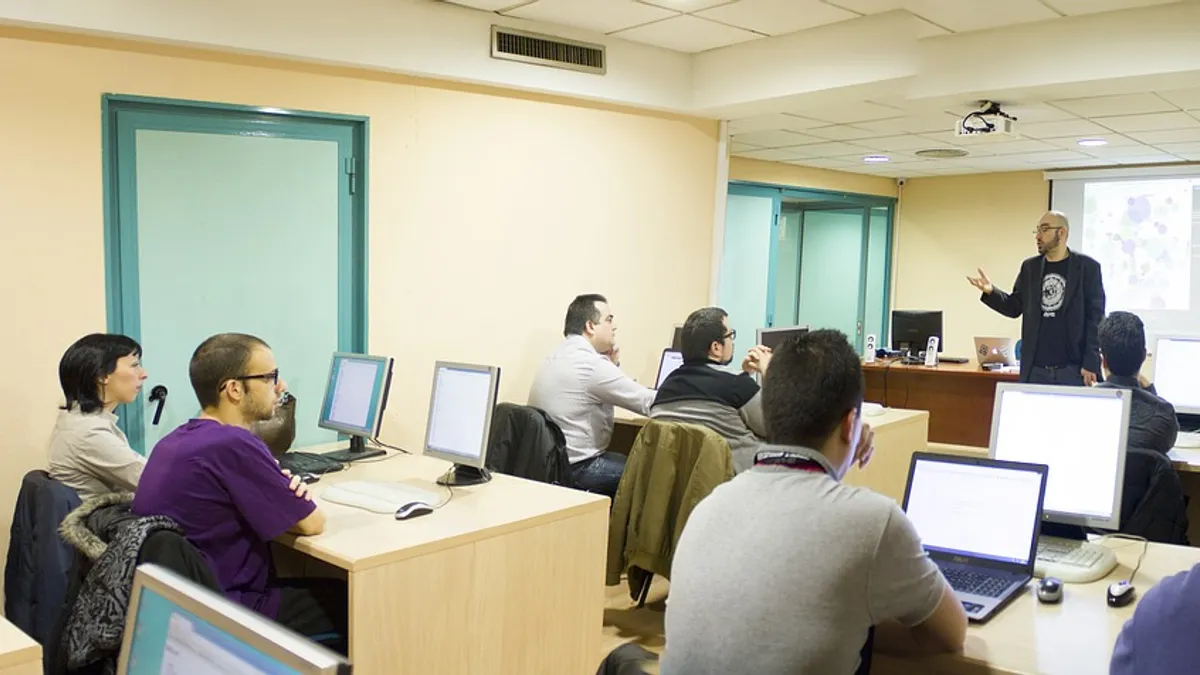Dive Brief:
- An American Staffing Association/Harris Poll survey of 2,000 American adults showed a majority of respondents believe a wide range of culprits — from educators, employers and governments to individuals themselves — share the blame for present skills gaps.
- Academia took the hardest hit, with 75% of respondents saying that schools are failing to educate students for the 21st century, and 93% saying that high schools and colleges aren't doing enough to make graduates more employable. More than half of respondents blame the federal government (54%) and state and local governments (57%) for failing to run sufficient training programs.
- But employers are also on deck. Nine in 10 respondents said employers could do more to train workers to learn in-demand skills. Sixty percent of respondents said employers fail to provide training (69%), offer apprenticeships (63%), communicate expectations to workers (61%) or be realistic about job candidates' abilities (58%).
Dive Insight:
None of the entities involved in closing the skills gap can take on the problem alone. Employers, educators and governments have been teaming up to solve skills shortages for decades. A recent example can be found in Lane County, Oregon, where 16 school districts partnered with the Technology Association of Oregon (TAO), a local industry group, to train high school students.
DXC Technology of Louisiana teamed up with area educators to close the skills gap for recruiting science, technology, engineering and mathematics (STEM) majors. The company plans to create a "Digital Transformation Center" in New Orleans that promises to provide 2,000 jobs during the next five years.
But employers can step up. Research by the Harvard Business School’s Project on Managing the Future of Work shows the number of U.S. apprenticeship occupations could triple, potentially increasing the number of actual apprenticeships eight-fold. Researchers reviewed 23 million job postings to find occupations that could use the current apprenticeship model and found three million that could fit the criteria. Employers might consider sponsoring apprenticeships to develop work-ready candidates.
Employers should also take the time to review recruiting practices; talent pools have shifted considerably, and HR could be overlooking several lesser-known groups in the process. The expansion of digital credentials could help to better identify workers with relevant skills, even more so than a degree on a resume.














